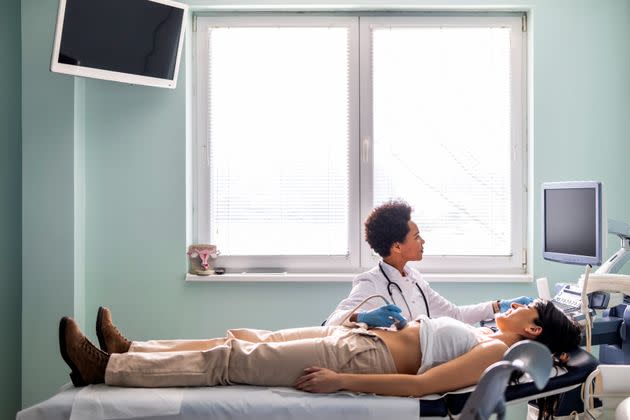The 5 Biggest Early Warning Signs Of Liver Damage
Your liver, which is the largest internal organ in your body, is responsible for a lot. It regulates blood clotting, removes toxins like alcohol from your bloodstream, helps in the production of bile and so much more.
But your liver can get damaged and have reduced functioning due to illness or lifestyle habits. In fact, liver disease is fairly common, affecting 4.5 million adults in the United States.
Liver disease is a very broad term that encompasses many different conditions that impair normal liver function, according to Dr. Douglas Weine, a gastroenterologist at Hackensack Meridian Health Center. Liver conditions include non-alcoholic fatty liver disease, hepatitis or even cancer.
Sometimes, these symptoms will happen immediately, but not always.
“Signs and symptoms of liver disease do not typically present until there is significant liver damage,” said Dr. Bubu Banini, a hepatologist and assistant professor at Yale School of Medicine.
So, how do you know when something is wrong with your liver? And how can you figure out what it is? We spoke to hepatologists about the five most common warning signs of liver disease and what to do if you spot these issues:
1. Yellowing of the skin or eyes
“A subtle sign of liver disease is yellowing of the white of the eyes or skin, known as jaundice,” Banini said.
This happens when there’s excess bilirubin, a pigment that is created during the natural breakdown of red blood cells in the body. Bilirubin is typically processed by the liver and removed from the body, but too much of it can cause jaundice and indicate liver issues.
While high levels of bilirubin aren’t always a huge issue for adults, the underlying issue causing it can be, which is why it’s crucial to talk to your doctor if you notice any yellowing of the skin or eyes.
2. Dark urine — even if you’re hydrated
Dark urine on its own typically doesn’t concern people. Usually, it’s an indicator that you need to drink some extra fluids.
But it is also typical for people with liver conditions to excrete dark urine, Weine said. This is due to the buildup of bilirubin, which can turn urine into a dark orange, brown or amber color. If you’re drinking normally and still noticing issues with urine color, it could be a sign that something else is going on.

3. Confusion
We all forget things from time to time, but major changes to your mental state shouldn’t be ignored. They could be a sign of liver problems or a number of other underlying issues. If you experience confusion or other mind-altering issues, seek help right away.
“A person who is otherwise healthy can develop acute liver failure that could manifest as changes in mental state or personality such as disorientation, confusion or sleepiness,” Banini said.
4. Swelling in the legs, ankles or the abdomen
You may not associate this issue with liver problems, but swelling in your legs and feet could potentially indicate something is wrong, Weine said. This is particularly true when you’re experiencing cirrhosis, which is the scarring of the liver.
Cirrhosis slows blood flow through the liver and increases pressure in the vein that brings blood through the organ, according to the Mayo Clinic. The pressure in this vein, known as a portal vein, “can cause fluid to accumulate in the legs, called edema, and in the abdomen, called ascites,” the Mayo Clinic stated, noting that “edema and ascites also may happen if the liver can’t make enough of certain blood proteins, such as albumin.”
5. Bruising and bleeding easily
People with liver damage may bruise or bleed easily when injured, Weine said. This happens because the liver produces proteins that the blood needs to clot, so when the liver is not functioning well, you are easily prone to bleeding.
What to do if you believe you have liver damage
Liver issues aren’t something to dismiss. Heavy or moderate alcohol use, Type 2 diabetes, using shared needles, contact with toxins or a family history of liver disease are all risk factors for liver damage.
If you believe you have any liver damage symptoms, it’s important to discuss this with your provider. Other symptoms include stool changes, exhaustion, appetite changes and more.
Banini suggested seeking immediate medical attention if you experience severe jaundice, unexpected changes in mental state, the development of black or tarry stools, vomiting blood, progressive swelling of the abdomen, ankles and legs or difficulty breathing. If you visit an emergency room, you can be referred to a liver specialist for further evaluation.

